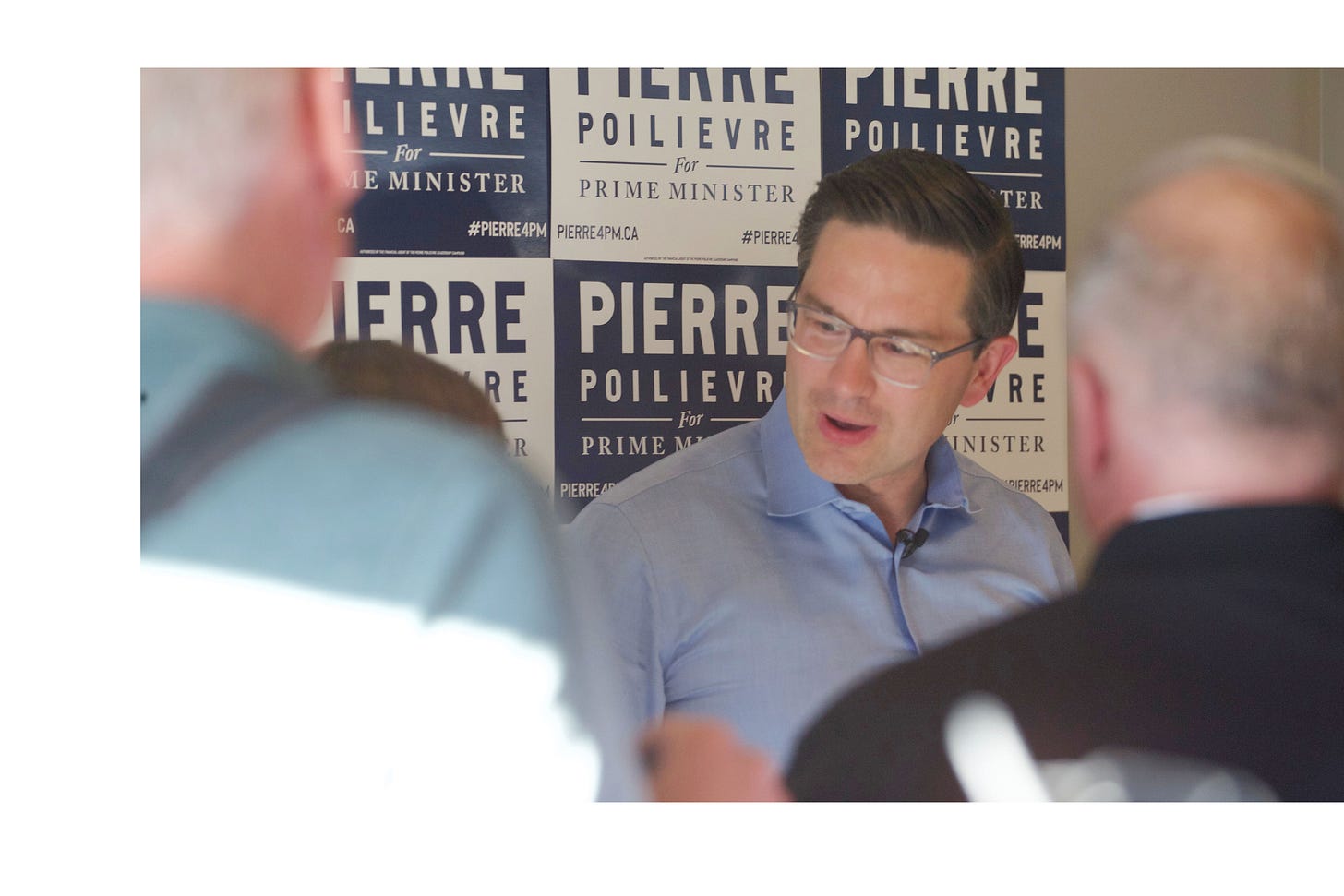Andrew Tumilty: How Ford threatens Poilievre
Their approach to politics is so far apart that as the most influential Conservative leader in the country, Ford becomes a problem for Pierre simply by existing.
By: Andrew Tumilty
The Liberal Party of Canada emerged from its first in-person convention in five years with a fighting spirit. Prime Minister Justin Trudeau made it clear that he will lead the party into the next election, and relishes the opportunity of going toe-to-toe with Tory leader Pierre Poilievre.
You can credibly argue that perhaps the party and its members should be showing less heart and more humility given the ongoing real and perceived challenges to this government’s reputation. None of the political and policy challenges facing this government went away because the Liberals had a party or because of anything guest-of-honour Hillary Clinton had to say.
Still, morale and unity matters in politics, and the Liberals seem ready to give Poilievre the fight of his life. Poilievre’s problem is that his biggest opponent may not be across the ring, but someone who should be sitting in his corner.
Ontario Premier Doug Ford may be a bigger obstacle than an ally to Poilievre’s own election hopes. In Ontario, where there are 121 federal ridings — more than a third of the total seats in the House of Commons — the federal Conservative party only holds 36 of those seats. There is a path to government for the CPC that does not go through Ontario, but it is only slightly wider than a tightrope, and equally precarious.
There is, however, no path to a federal Conservative majority government without a substantial increase in the party’s Ontario seat count. And given the broad opposition to Conservative policies and Poilievre personally across Canada’s centre and left, winning a majority government, there may be no path for a Conservative government at all. The NDP and Liberals, after all, are showing that they can work together — not perfectly, but effectively enough.
Ford and Poilievre may share a broad political philosophy as upper-case Conservatives. But their approach to politics is so far apart that as the most influential Conservative leader in the country, Ford becomes a problem for Pierre simply by existing.
Ford, at least since the outset of the pandemic, brings a practicality to his politics unheard of in the ideological enclaves of the Opposition Leader’s Office in Ottawa. To start, consider how Ford and Poilievre relate to the prime minister.
Neither Ford or Poilievre are likely to vote for Trudeau, but there is a key difference in how they practice their respective partisanship. Ford treats Trudeau as a political rival. Someone he can speak out against, but can also collaborate with. Someone he may disagree with, but ultimately can show he respects as well.
Ford is famous for touting that there is only one taxpayer, and his approach to the prime minister demonstrates an understanding that they both work for that same taxpayer.
Poilievre casts Trudeau as an enemy. With an enemy there can be no cooperation, no willingness to see their point of view, or search for common ground to deliver a win-win scenario. There can only be battle, and eventually, defeat — yours or theirs.
In his early days as premier, Ford fought ideological battles and generally took a roughshod approach to governing. The ensuing chaos was seemingly encouraged by a combative chief of staff who eventually resigned in scandal. The Ford that emerged since sought a more practical image, that allowed outreach to labour unions and EV announcements with Trudeau.
Ford has largely shifted his focus to more practical concerns such as transit, housing, health care and the cost of living. Anyone objecting to Ford’s actual stance on these issues likely isn’t voting for him or Poilievre, but this isn’t the point.
There are many reasons to take issue with his approach on these files, but you cannot argue that these are issues people don’t care about. Put another way, ask people where housing or health care fits on their priority list and compare that to where they rank defunding the CBC.
In the next election, accessible Conservative voters in Ontario will be well aware that Poilievre’s brand of conservatism isn’t the only one available. They may even come to believe it isn’t the best version available, seeing as the CPC have lost three elections in a row, while Ford has won two.
Should Poilievre fail to gain ground in Ontario and fail to win the next election, he is as likely to lose the leader’s job as those that came before him.
If that’s the case, Ford will be in the back half of his second term when the federal CPC job opens up. By then, federal Conservatives might be ready for a leader who has already shown he can win in Ontario.
Andrew Tumilty has crafted strategic communications and advice for local Liberal candidates and central party campaigns. He is a senior consultant for strategic communications and issues management with Enterprise Canada in Toronto. Follow him on Twitter at @AndrewTumilty
The Line is Canada’s last, best hope for irreverent commentary. We reject bullshit. We love lively writing. Please consider supporting us by subscribing. Follow us on Twitter @the_lineca. Pitch us something: lineeditor@protonmail.com



